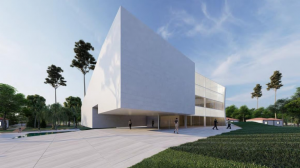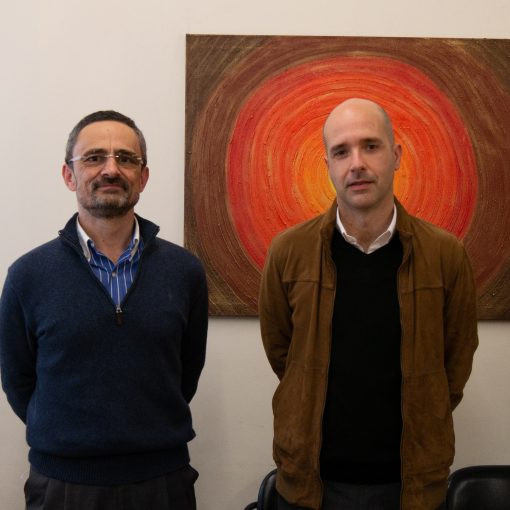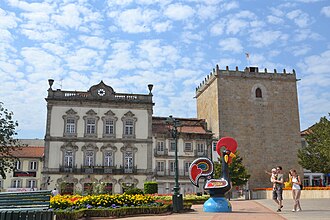UMinho’s Multidisciplinary Institute of Marine Science and Technology will be a reality in the next few years.
The Multidisciplinary Institute of Marine Science and Technology of the University of Minho (MarUMinho), which will occupy the premises of the former Radionaval station in Apúlia, was presented on 9 January at the municipal auditorium in Esposende. The presentation session was attended by the Minister for the Economy and the Sea, António Costa Silva, the Rector of UMinho, Rui Vieira de Castro, the Mayor of Esposende, Benjamim Pereira, and the architect responsible for the project, Vítor Hugo.
MarUMinho is the result of a cooperation protocol signed in 2015 between UMinho and the Esposende City Council, and it is hoped that this infrastructure will enable the consolidation of research initiatives in the area of valorisation of marine resources in the North Coast region, aimed at assessing, in an integrated manner, the potential application of these resources in various sectors. This centre will also enable the installation and establishment of a coastal observation service for the NW Portugal, focused on assessing the impacts of climate change on coastal hydrodynamics and morphodynamics.
The project presented aims to renovate the station’s old buildings, such as the canteen – which will have space for 200 people – the housing – which will be able to accommodate around three dozen students and researchers – and also a swimming pool – which can be used for testing equipment. There will also be two buildings on the site, one equipped with new laboratories and the other for companies, spinoffs and startups linked to the blue economy, the food industry, renewable energies, cosmetics and pharmaceuticals, but also textiles and product design.
MarUMinho will house the Earth Sciences Centre (CCT), the Biomaterials, Biodegradables and Biomimetics Research Group (3Bs), the Center for Microelectromechanical Systems (CMEMS), the Molecular and Environmental Biology Centre (CBMA), the Centre of Biological Engineering (CEB), the Institute for Sustainability and Innovation in Engineering Structures (ISISE), the Institute of Polymers and Composites (IPC), the Centre for Territory, Environment and Construction (C-TAC) and the Research Centre for Economic and Business Policies (NIPE).
After the session, there was a visit to the former facilities of the Apúlia radio naval station.




